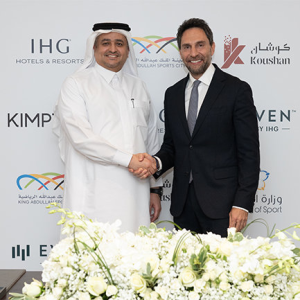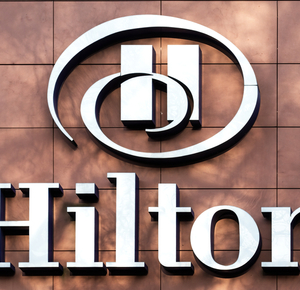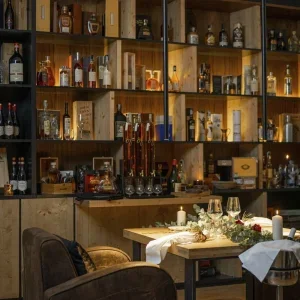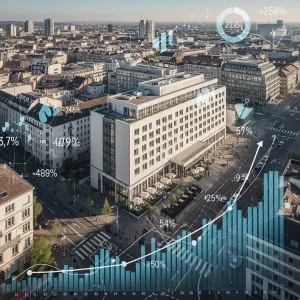According to findings from the J.D. Power 2020 North America Hotel Guest Satisfaction Index (NAGSI) StudySM released last week, meeting guest expectations for cleanliness and proactively communicating with guests prior to arrival continue to be critical drivers of guest satisfaction. But before we can expect to have happy guests, we need to have happy employees who are willing to go back to work … learn all new operating procedures … do more with less … and put themselves at risk. Yes, guest communication is important, but it must come on the heels of proactively communicating with employees prior to their return.
Put yourself in your employees’ shoes for a moment. The hotel is reopening. No, it’s remaining closed. Wait … it’s reopening again … tentatively. Spikes in COVID-19 are shifting as the epicenter of the virus keeps moving. This economic roller coaster is wreaking havoc with employees’ emotions and their livelihoods, and it’s making them confused, stressed, and maybe even a bit angry. The only way to keep your teams apprised of what is happening day to day — or hour by hour — and motivated to work amidst this new normal, is through digital communications. This is not the time to have human resources personnel or general managers calling workers in hopes of connecting (since company email addresses for those who don’t sit behind a desk are nonexistent). Digital communication tools like Beekeeper are proving to be the most viable way for managers to communicate instantly, train their people, and provide reference materials and standard operating procedure (SOP) guidelines that are easily accessible.
Today more than ever workers need to learn how to wear many hats. While it may be challenging for a person to learn something new, especially if that person has been doing things a certain way for a very long time, digital training tools like webcasts and videos are making it extremely easy for workers to grasp new cleaning procedures quickly across all guest touch points. Housekeeping is the biggest undertaking. Most of the tasks that were once routine are now new and they are constantly evolving; too many changes too often can be overwhelming to even the most seasoned housekeeper. But, skipping one step or failing to disinfect every surface no matter how small can result in illness or worse, re-closing of the hotel. As operators, it’s critical that workers don’t become immune to these “extra” precautions.
So how do hoteliers make the new normal procedures of today easier and how do they hold workers accountable for compliance? The answer is simple: Digital Checklists.
Digital checklists make the lives of housekeepers, supervisors and managers easier on many levels. They free up time, offer visibility into the cleaning status of state-regulated common areas, provide an audit trail of tasks assigned/completed, and deliver a quick return on owner investment. For example, Beekeeper recently partnered with LUA (formerly Whispr) to integrate their workflow tool into our employee communication platform. Associates follow a checklist within a mobile app while managers utilize the web to customize and edit SOPs, revise disinfecting and sanitizing guidelines, and assign/verify that tasks and other procedures are being adhered to. It’s impossible for staff to skip steps, as Task A on a digital checklist will need to be completed before Task B can begin. If workers forget how to perform a chore, step-by-step digital instructions can be accessed instantly via Beekeeper.
By digitalizing today’s hotel workforce, operators can deliver the right SOP to the right worker at the right time to guarantee the right result while simultaneously freeing up time for supervisors who can then spend more time elevating the guest experience. For example, getting all rooms from dirty to clean to ready for check-in at a 300-room hotel takes approximately 25,000 workflows per month when managed by pen and paper. Let’s say a housekeeping supervisor using pen and paper works eight hours a day, five days a week. He or she will walk about five miles a day just checking to see if rooms are ready! At $15 per hour, the hotel is paying a $9,000 per supervisor for just walking around, checking if rooms are ready, and linking updates to the property-management system. That’s a lot of money to dish out just to get room status information, especially when a property will rely on multiple supervisors simultaneously. This is not an effective use of capital in today’s economy where cost savings are critical and every penny counts. Those same workflows can be affordably managed today via an easy-to-use integrated digital platform from Beekeeper/LUA that guarantees greater efficiency and helps improve worker performance using better information, data, and artificial intelligence.
Even in normal times, engagement is a difficult thing (Gallup reports only 30% of employees are engaged); today it is harder than ever. According to SHRM COVID-19 research, “two in three employers say that maintaining employee morale is a challenge” and this statistic is probably much worse for hospitality since it was hit harder by the pandemic than other industries. So, it is even more important today than in normal times that hoteliers work hard to engage every single one of their employees. To do so, workers must understand why they need to follow the stringent SOPs; knowing that the work they are doing is important will make them more willing to contribute to the success of the company.
The most critical component of engagement is getting employees to take pride in their work and in the company itself. Communication around company values, initiatives, and accomplishments makes employees feel part of something important, something with a social conscience. It is also important to give employees a voice to raise concerns so you can address issues early. Tools like Beekeeper enable managers to have this transparent communication and also recognize their team in front of everyone, in a timely manner, so each person feels connected to their colleagues and the company. Engaged employees are more likely to stick around through recovery and give 100% of the effort that is required of them.
Don’t forget, effective communication goes both ways. Listening to your employees not only boosts engagement, but it is good for business. Many of the protocols developed for reopening were likely devised in the corporate office long before guests returned. As they come back, you need to validate that the new SOPs are providing safety while ensuring a memorable guest experience. It’s these workers who are interacting with guests, so hearing their suggestions is invaluable. Leveraging tools like Beekeeper encourages employees to bring ideas on how to improve across the board.
Hoteliers were already taking cleanliness very seriously before COVID-19. Now it’s time to take cleanliness, guest safety and guest experience to the next level. To do that, operators will need to adopt digital technologies that will help employees engage with the hotel and each other, and ultimately perform their jobs to the best of their abilities. When we take care of our employees, they will take care of our guests.
About the Author
Andrada Paraschiv is head of Hospitality for Beekeeper, a mobile-first communication platform built for frontline employees that reaches every shift, location, and language through real-time messaging, targeted streams, and automated workflows.






